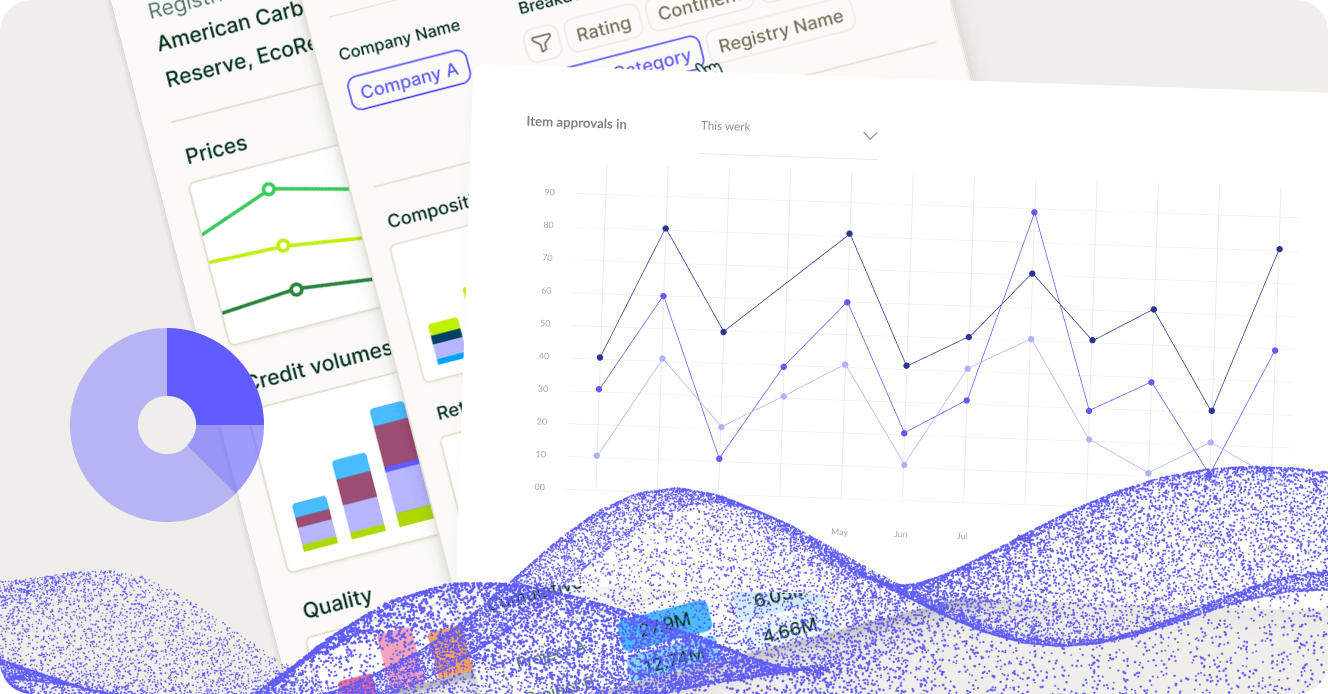“Over the years we’ve invested significantly in our field data team - focusing on producing trusted ratings. While this ensures the accuracy of our Ratings, it doesn’t allow the scale across the thousands of projects that buyers are considering.”
For more information on carbon credit procurement trends, read our "Key Takeaways for 2025" article. We share five, data-backed tips to improve your procurement strategy.

One more thing: Connect to Supply customers also get access to the rest of Sylvera's tools. That means you can easily see project ratings and evaluate an individual project's strengths, procure quality carbon credits, and even monitor project activity (particularly if you’ve invested at the pre-issuance stage.)
Book a free demo of Sylvera to see our platform's procurement and reporting features in action.
This week, the US Securities and Exchange Commission (SEC), a financial regulator, approved its Rules to Enhance and Standardize Climate-Related Disclosures. The new rule holds promise in enhancing transparency within the Voluntary Carbon Market (VCM), which could have big implications for transparency and a better functioning VCM.
Understanding the New SEC Disclosure Rule
The new regulation mandates public companies in the US to disclose crucial information regarding their climate impacts and risk exposure. The SEC initially published a draft proposal for enhancing and standardising climate-related disclosures in March 2022 and has now approved the finalised rule. Although the finalized rule brings US reporting requirements for public companies closer to those of the EU and California, it falls short of the rigor proposed in the draft.
Listed companies in the US must now publish:
- Scope 1 and 2 emissions if deemed 'material' to business strategy, results of operations, or financial condition.
- Climate-related targets or goals, if material.
- Details about carbon offsets and renewable energy credits (RECs) if they are a significant component of a company’s climate-related strategies, including the amount of carbon reduction, nature and source of credits, description and location of the underlying projects, registry and authentication information, and related expenditures or losses. Additionally, companies must disclose their accounting policies for credits and RECs.
Scope 3 emissions are not required to be disclosed.
The rule applied to filings from 2025 for climate risks and 2026 for emissions.

Heightened Focus on Credit Quality
The approved SEC rule signals increased scrutiny and emphasis on climate impacts and risks. Investors in carbon credits in the US will face increased scrutiny and are likely to direct more attention to the quality of these credits because of it. More spotlights on credit quality will prompt more companies to seek third-party assurance, overall enhancing market transparency and trust.
Enhanced Transparency in the VCM
The rules around carbon credit disclosures have the potential to substantially enhance transparency within the VCM. Notable impacts are expected in pricing dynamics - some of the biggest buyers of credits are US-listed companies and often the prices paid for credits are undisclosed.
This SEC rule will increase pricing transparency in the VCM, and this could accelerate a correlation between price and quality, as buyers have a stronger sense of what different credits should be worth and quality can be factored in more strongly. Right now, VCM pricing data is spotty at best, making it difficult for buyers to compare credits by price/quality and make decisions that drive the most amount of capital toward the maximum climate impact. Heightened transparency would help solve this.
While this regulatory development holds promise, its true impact hinges on interpretations of what constitutes 'material' disclosures. For the voluntary carbon market, it could have massive implications for transparency and quality assurance in the market. Ratings firms helped solve the first piece of quality transparency, but now buyers need price transparency. More disclosures around the credits companies buy means more transparent pricing across the market – a major part of what’s holding back the market mechanics to date. As more jurisdictions adopt similar rules, the market's mechanisms are poised to undergo further improvements, potentially bridging the gap in pricing transparency that currently exists.
Want to understand more about the implications? Head to the Sylvera platform.















